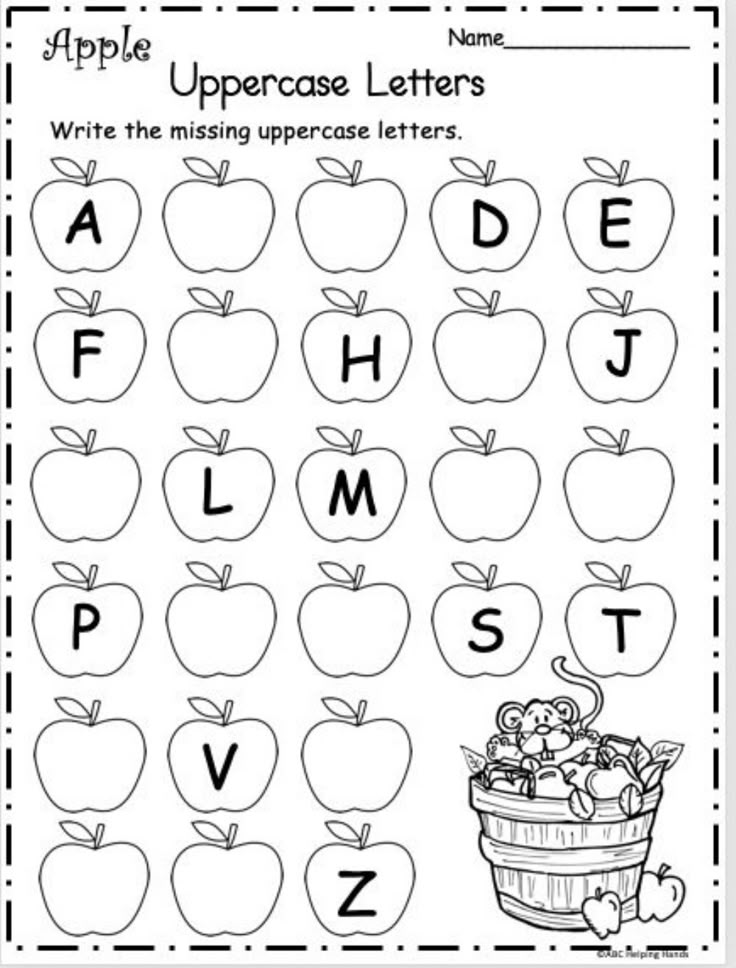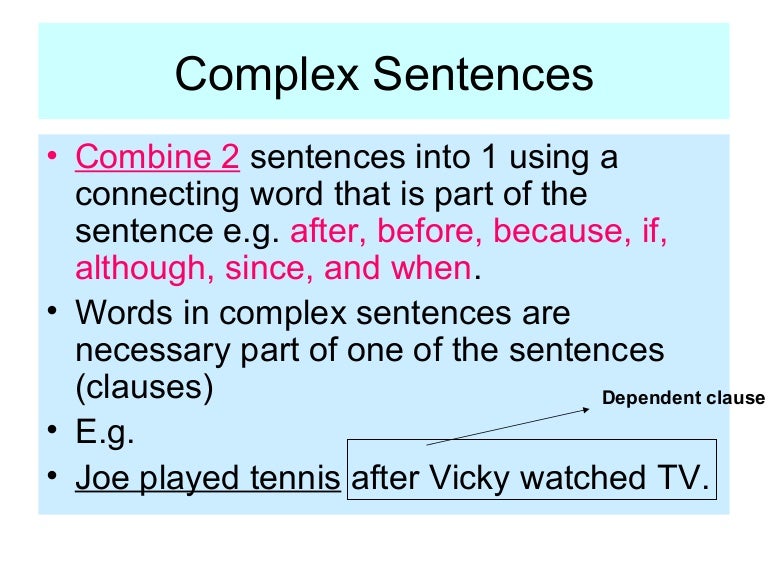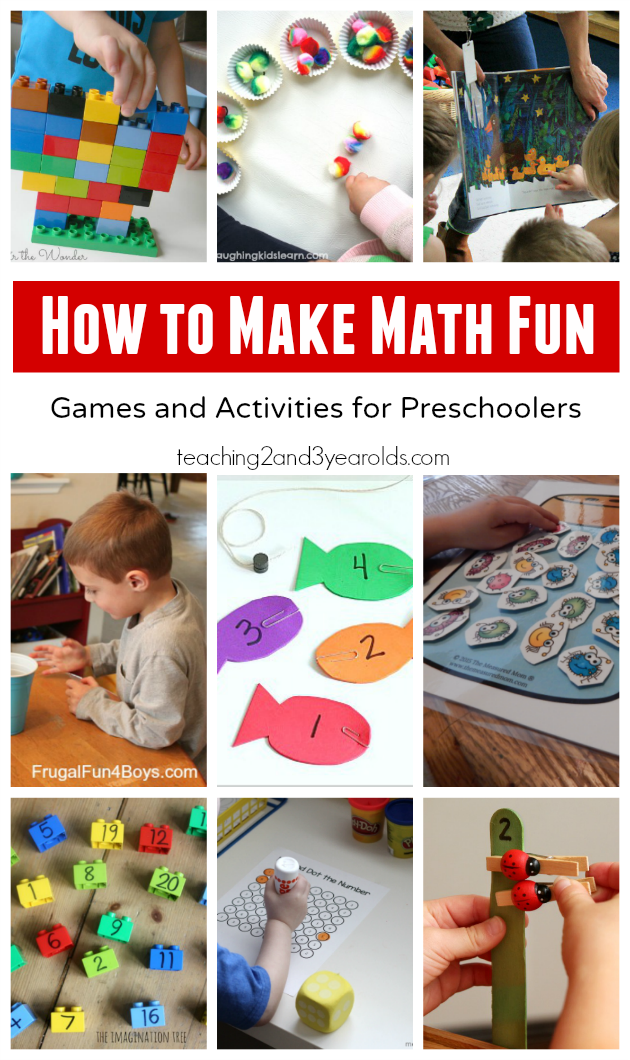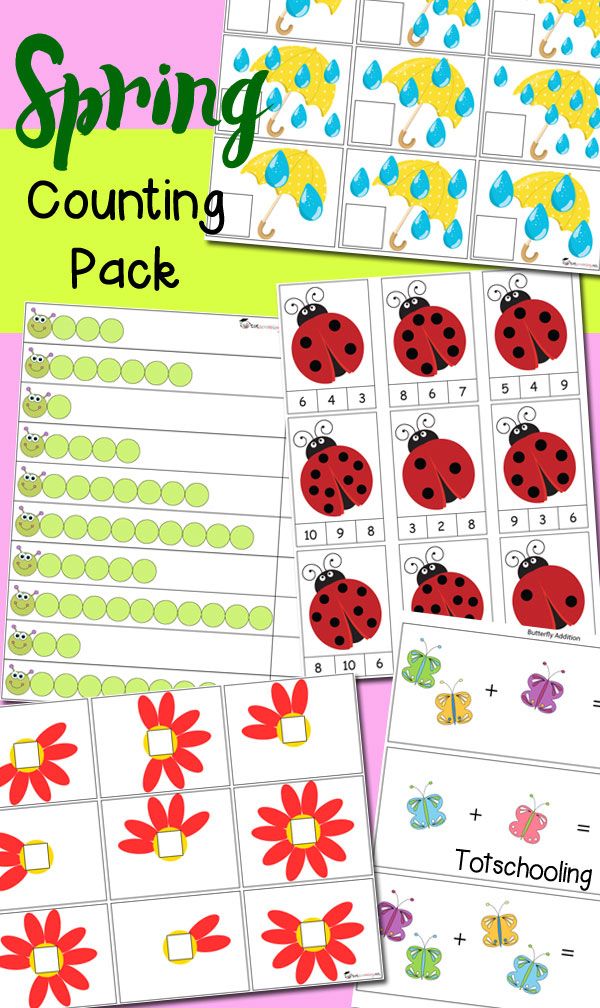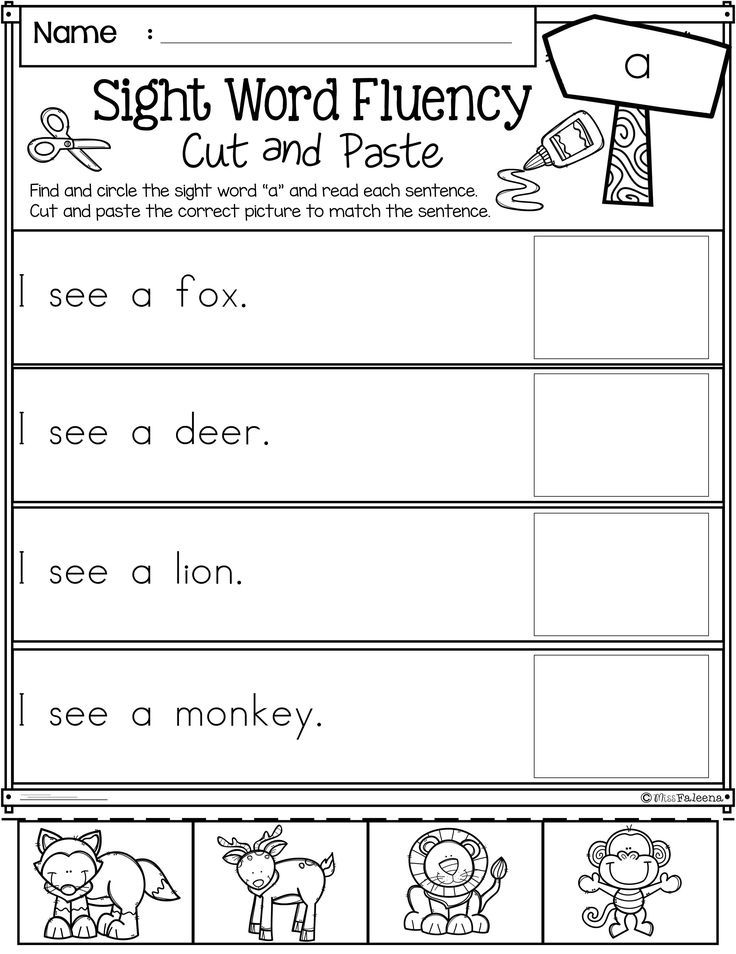Getting kids reading
14 Ways to Encourage Grade-Schoolers to Read
It’s easier for kids to build reading skills when they enjoy reading. They practice more, and they feel more motivated to take on reading challenges. Try these tips to encourage your child to read — and hopefully build a love of reading.
1. Read it again and again.
Encourage your child to read familiar books. If your child wants to take the same book out of the library for the 100th time, that’s just fine. Re-reading helps build speed and accuracy. And that can help build confidence for kids who learn and think differently.
2. Make reading real.
Connect what your child reads with what’s happening in real life. For example, if you’re reading a story about basketball, ask questions about when your child learned to shoot hoops and how similar it was to the kids’ experience in the story.
You can also look for follow-up activities that make stories come to life. If the book references kites, ask your child to brainstorm fun kite-related activities, like how to make a kite. Hands-on activities like these can keep kids engaged with the topic.
3. Don’t leave home without something to read.
Bring along a kid-friendly book or magazine any time you know your child will have to wait in a doctor’s office, at the DMV, or anywhere else. Stories can help keep your child occupied. And the experience will show that you can always fit in time to read.
4. Dig deeper into the story.
Help your child engage with a story by asking questions about the characters’ thoughts, actions, or feelings: “Why does Jack think it’s a good idea to buy the magic beans? How does his mother feel after she finds out?” Encourage your child to connect to the story through experiences you may have had together.
5. Make reading a free-time activity.
Try to avoid making TV the reward and reading the punishment. Remind your child there are fun things to read besides books. And set a good example for your child by spending some of your free time reading instead of watching TV — and then talking about why you enjoyed it.
6. Take your time.
When your child is sounding out an unfamiliar word, leave plenty of time to do it, and praise the effort. Treat mistakes as an opportunity for improvement. Imagine your child misreads listen as list. Try re-reading the sentence together and ask which word makes more sense. Point out the similarities between the two words and the importance of noticing the final syllable.
7. Pick books at the right level.
Help your child find books that aren’t too hard or too easy. Kids have better reading experiences when they read books at the right level. You can check your choices by having your child read a few pages to you. Then ask questions about what was read. If your child struggles with reading the words or retelling the story, try a different book.
8. Play word games.
Use word games to help make your child more aware of the sounds in words. Say tongue twisters like “She sells seashells by the seashore.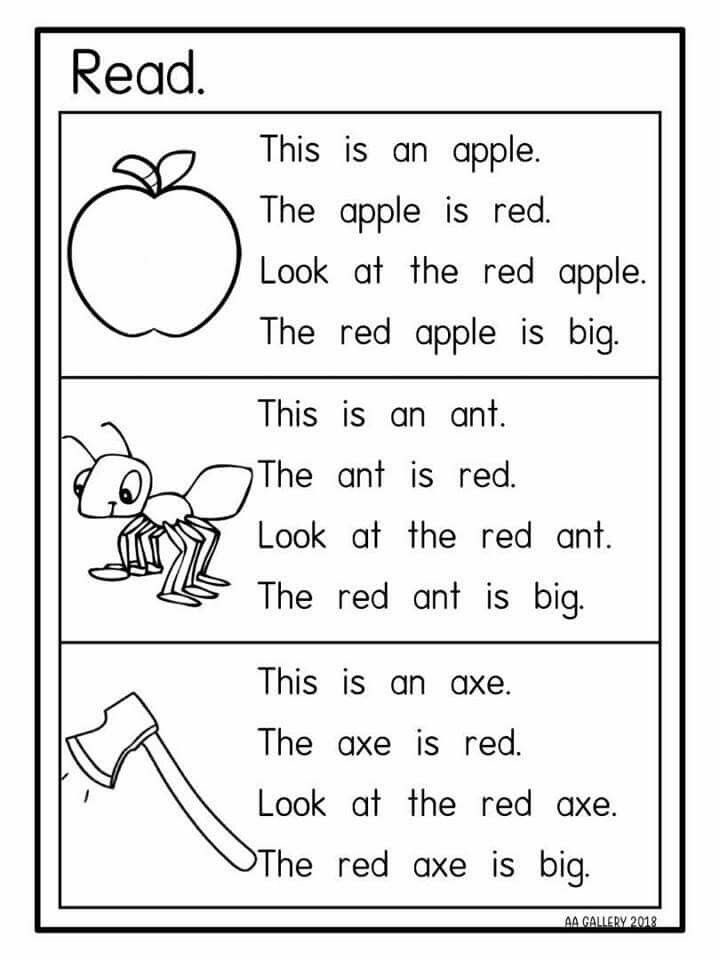 ” Sing songs that use wordplay, like Schoolhouse Rock’s “Conjunction Junction.” Or swap out the letters in words to turn them into new words. (For example, map can become nap or rap if you change the first letter, man if you change the final letter, and mop if you change the middle.)
” Sing songs that use wordplay, like Schoolhouse Rock’s “Conjunction Junction.” Or swap out the letters in words to turn them into new words. (For example, map can become nap or rap if you change the first letter, man if you change the final letter, and mop if you change the middle.)
9. Read to each other.
Take turns reading aloud during story time. As your child grows as a reader, you can gradually read less and let your child take the lead more often. If you have younger kids, too, encourage your older one to take on the responsibility of reading to them.
10. Point out the relationships between words.
Talk about words whenever you can. Explain how related words have similar spellings and meanings. Show how a noun like knowledge, for example, relates to a verb like know. Point out how the “wild” in wild and wilderness are spelled the same but pronounced differently.
11. Make books special.
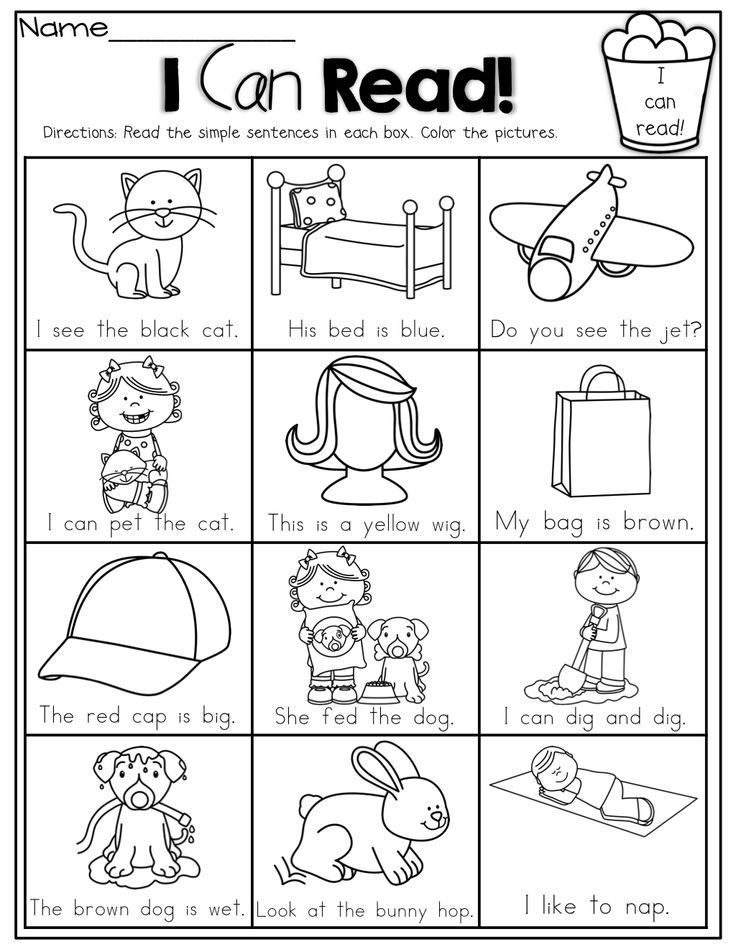
Kids who have trouble with reading may try to avoid it because it makes them feel anxious or frustrated. Try to create positive feelings around reading by making it a treat. Get your child a library card or designate special reading time for just the two of you. Give books as gifts or rewards.
12. Make reading creative.
Change up reading activities to play to your child’s strengths. If your child loves to draw or make things, create a book together. Fold paper and staple it to resemble a book. Work together to write sentences on each page and have your child add illustrations or pictures. Then read it out loud together.
13. Let your child choose.
Some kids prefer nonfiction books. Some love only fantasy or graphic novels. Or maybe your child prefers audiobooks or reading things online. The important thing is to practice reading, no matter where or how it happens.
14. Look for a series of books.
Ask a librarian or a teacher for suggestions about popular book series your child might like.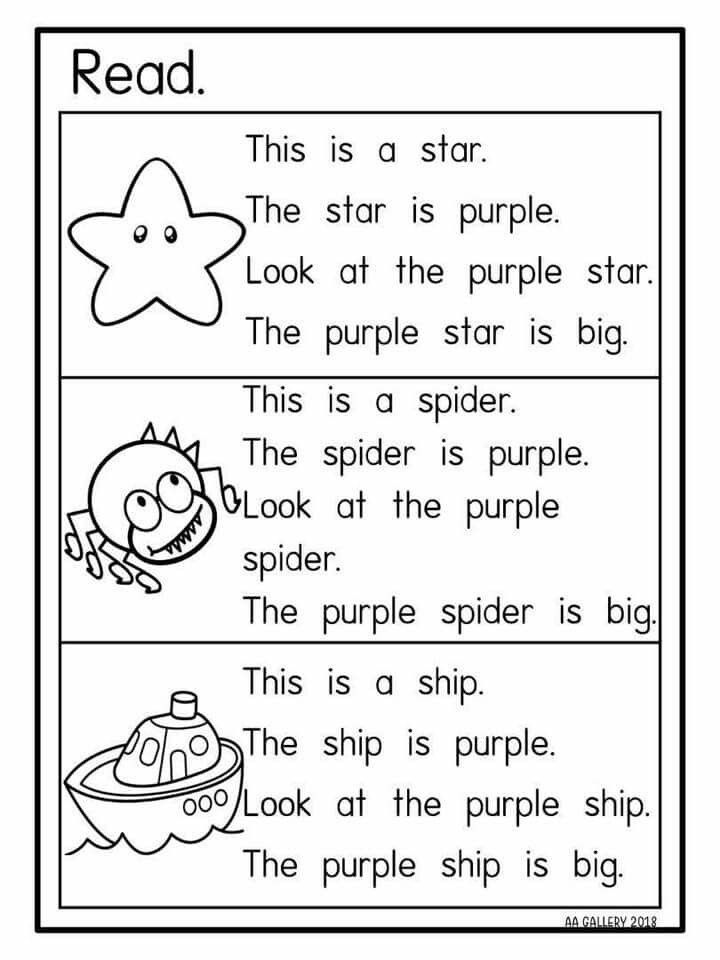 Reading a series of books helps kids get familiar with the tone, characters, and themes. This familiarity can make the next books in the series easier to grasp.
Reading a series of books helps kids get familiar with the tone, characters, and themes. This familiarity can make the next books in the series easier to grasp.
Get tips on fun books for reluctant readers. You can also check out book picks from our community.
9 Fun Ways to Keep Kids Interested in Reading and Storytelling
It can sometimes be a struggle to get kids interested in reading, but it’s so important, in ways we may not always think about. Reading and storytelling are vital to preserving cultural identity, developing healthy brains, and cultivating curiosity in youngsters. In the following excerpt from Mamaleh Knows Best: What Jewish Mothers Do to Raise Successful, Creative, Empathetic, Independent Children, author Marjorie Ingall offers a simple methodology for getting kids interested in storytelling and helping them find their sweet spot when it comes to reading.
1. Storytelling doesn’t just mean reading! Listen to storytelling podcasts and radio shows like The Moth.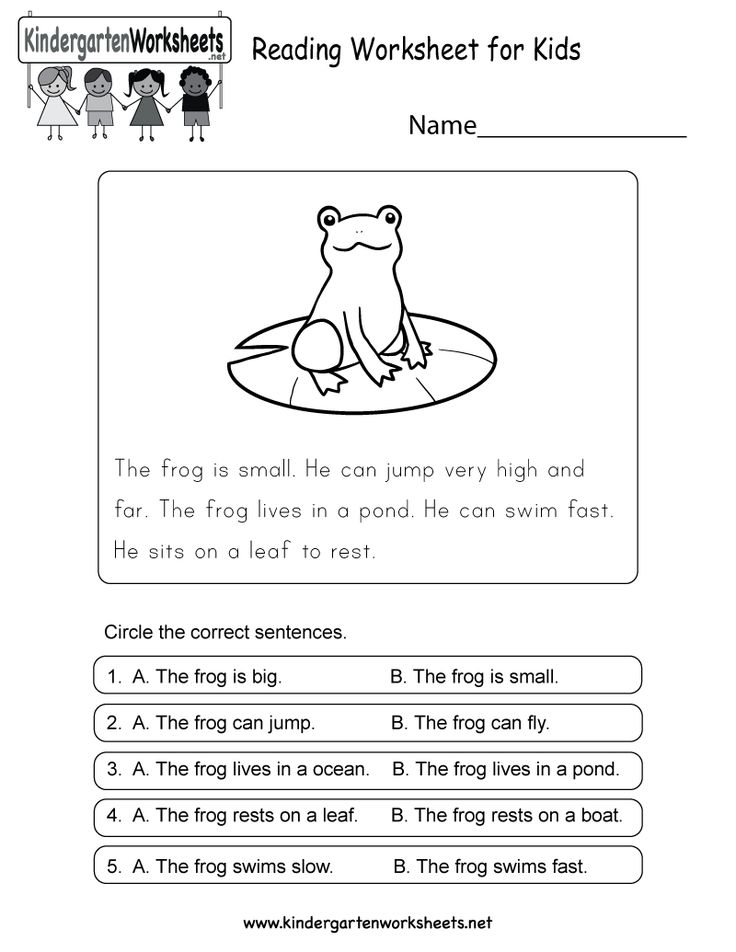 Play audiobooks in the car. Retell folktales, fairy tales, urban legends, family lore. Whenever you’re telling or reading a story, keep your kid engaged by asking them open-ended questions about the characters or plot, questions the kid can’t answer with a yes or no.
Play audiobooks in the car. Retell folktales, fairy tales, urban legends, family lore. Whenever you’re telling or reading a story, keep your kid engaged by asking them open-ended questions about the characters or plot, questions the kid can’t answer with a yes or no.
2. If your kid doesn’t like to read, don’t give up. You haven’t found the right book. Explore different kinds of fiction, poetry, graphic novels, books of world records and kooky facts, profiles of presidents and sports heroes, gross-out science books. Get suggestions from a cool teacher or librarian. If your kid has a learning disability or just isn’t into reading on their own, read aloud to them, tell stories and listen to audiobooks together for as long as your kid will let you.
3. You can’t go wrong with funny. For younger kids, rhyming books are great; they can guess at each rhyme, so there’s built-in suspense. Have no shame when you read aloud: Do accents. Take dramatic pauses. Modulate your voice, raising and lowering it to build narrative momentum.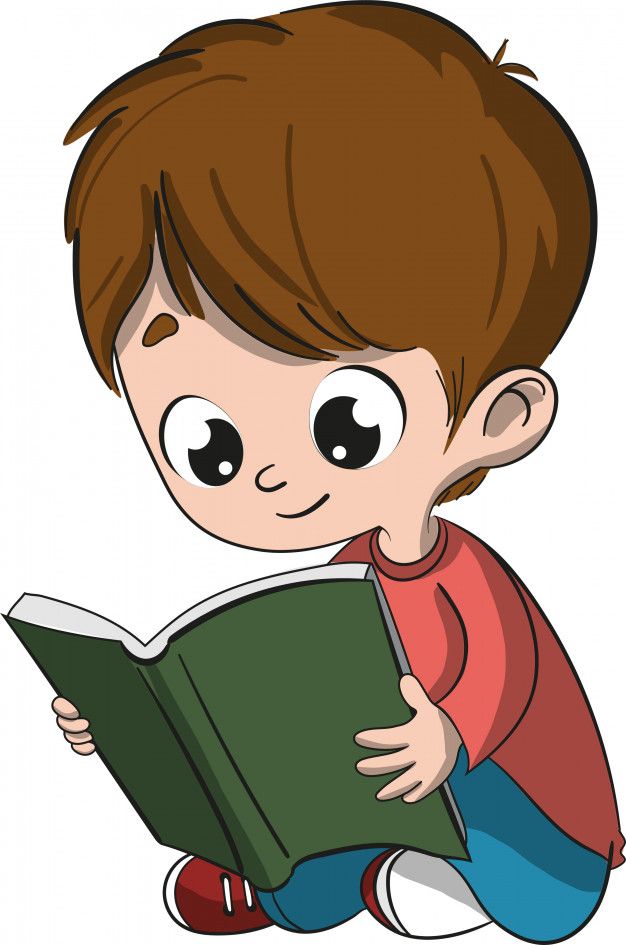 Let your children mock you. My kids always loved when I cried at the end of Charlotte’s Web or Mrs. Katz and Tush. They’d look at each other, snickering, clearly thinking, Poor Mom, she’s daft.
Let your children mock you. My kids always loved when I cried at the end of Charlotte’s Web or Mrs. Katz and Tush. They’d look at each other, snickering, clearly thinking, Poor Mom, she’s daft.
4. Dedicate time to reading. Make it a ritual. Make it part of your day. If your kid is not a sit-still kid, even 15 minutes of reading a day is better than nothing. And again: You might just not be reading the right book.
5. Let kids choose their own books. I’ve never told my kids they weren’t allowed to read something. I learned this from my fabulous mom, who watched me read Deb Putnoi’s copy of Judy Blume’s Forever at a house party when I was nine. Adults were giving her an earful about “letting me” read something so risqué, but she kept replying with variants of “If she has questions, she’ll ask me.” That was a big lesson for me, and now that I’m a parent, I’ve exercised veto power only at bedtime, and only once or twice. Because when [my daughter] Josie got scared she became a hysterical chaleria (excessively nervous person: literally “person with cholera”) and would fight sleep for days and make us all want to die of exhaustion.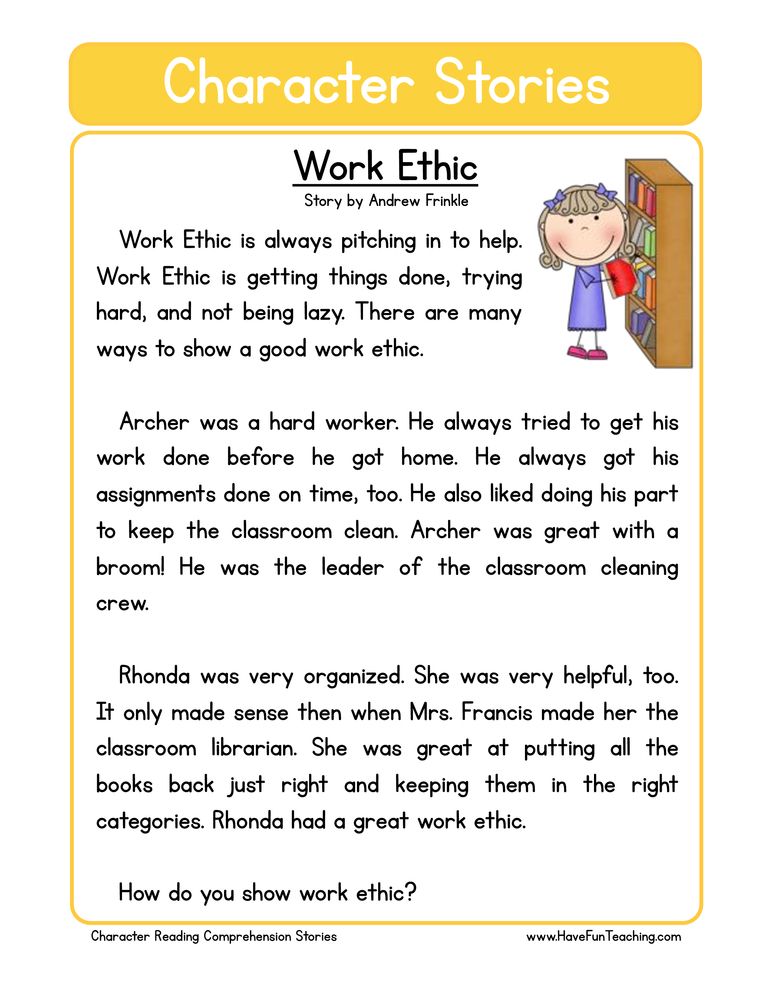 (Advice within advice: Let your children read Roald Dahl’s The Witches only during daylight hours.) And if your kid is reading books you don’t approve of — from sexist comic books to poorly written sparkly vampire romance, the worst thing you can do is ban what they love. Talk about why you think certain books are dumb or offensive (or better, let your kid make a book recommendation, actually read the thing, and then discuss the book together), but don’t shame your kid for having different tastes from yours.
(Advice within advice: Let your children read Roald Dahl’s The Witches only during daylight hours.) And if your kid is reading books you don’t approve of — from sexist comic books to poorly written sparkly vampire romance, the worst thing you can do is ban what they love. Talk about why you think certain books are dumb or offensive (or better, let your kid make a book recommendation, actually read the thing, and then discuss the book together), but don’t shame your kid for having different tastes from yours.
6. Harness peer pressure. Kids take book recommendations from other kids more seriously than they do recommendations from adults. When Josie went through a sci-fi and fantasy stage, a genre about which I’m clueless, she got book suggestions from her friend Nora.
7. Get your kid into series books. They may not be the greatest literature, but they create anticipation and identification with recurring characters. You can always mindlessly borrow or buy the next one in the series, which is a huge relief when you’d rather be thinking about a cocktail than kids’ lit.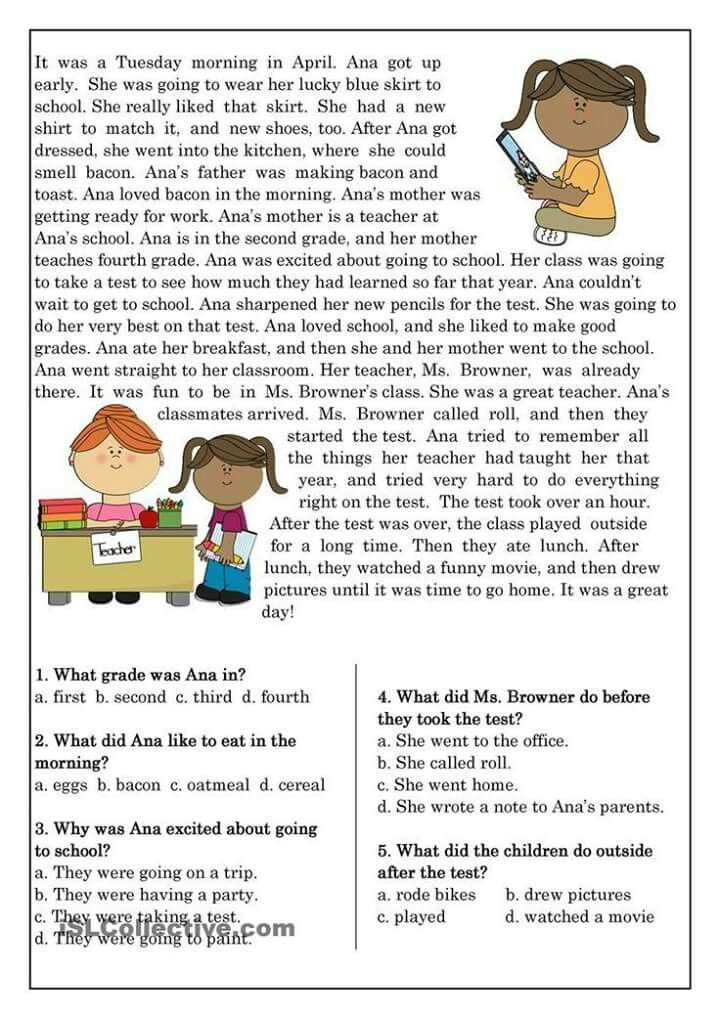
8. Kids see through “do as I say, not as I do.” Model the behavior you want to see. Invite your kid to sit next to you on the couch as you both read. Keep books out — in baskets, on shelves, and on coffee tables. The way I got Josie to read Harry Potter — which I knew she’d love but which she stubbornly refused to try because she is contrary like her mother — was to take it on vacation, leave it on the coffee table of our rental house, and say absolutely nothing.
9. Pro Tip: “Two truths and a lie” is a good way to get sullen tweens to tell a story. Here’s the game: At dinner, everyone has to say three things that happened that day, two of which are true and one of which isn’t. Then everyone else has to guess which is the lie. It’s a sneaky way to get anecdotes out of your kids beyond “How was your day?” “Fine.”
Adapted from Mamaleh Knows Best: What Jewish Mothers Do to Raise Successful, Creative, Empathetic, Independent Children by Marjorie Ingall.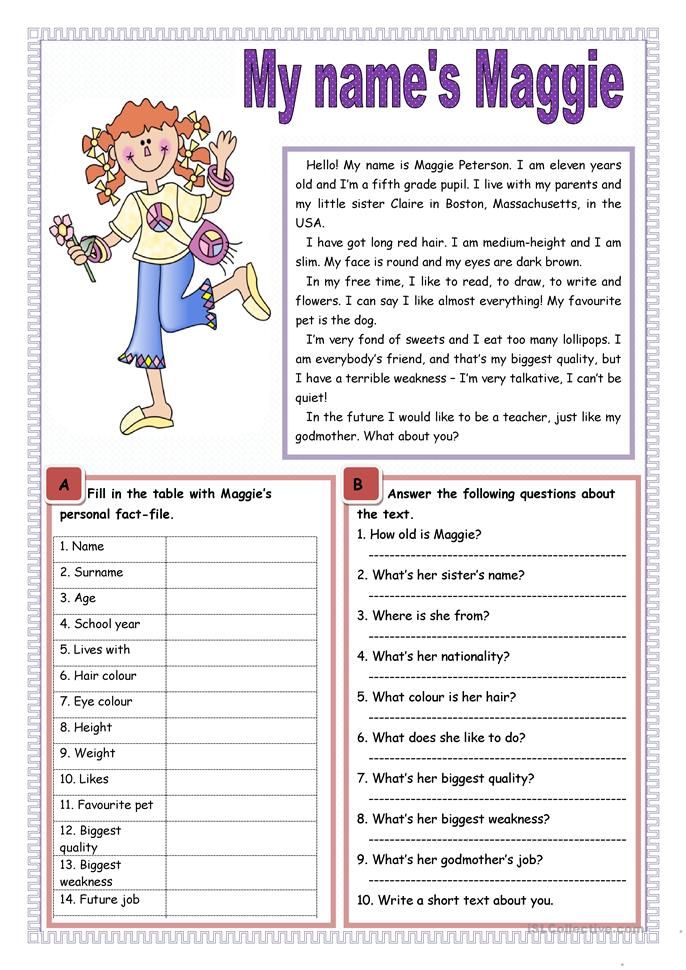 © 2016 by Marjorie Ingall. Harmony, Crown Publishing Group, Penguin Random House LLC.
© 2016 by Marjorie Ingall. Harmony, Crown Publishing Group, Penguin Random House LLC.
7 tips on how to help your child fall in love with reading (voluntarily!)
For one child, a book is really the best gift, while another will cringe at the sight of another volume. They force you at school, now at home too. But you don’t need to force it, even a school reading list for the summer. How to really captivate a child with books - says a specialist in children's reading and writer Yulia Kuznetsova.
1. Do not force a child to read
The desire to read is formed from within, so I am sure that forcing a child to read at five or six years old is a dangerous path. The word "should" should be applied to children's reading in general with caution and at a more serious age, from grade 5-6 and only in relation to school literature.
If a child does not feel like reading by himself, there is nothing wrong with that. My middle son did not take reading aloud until he was three years old.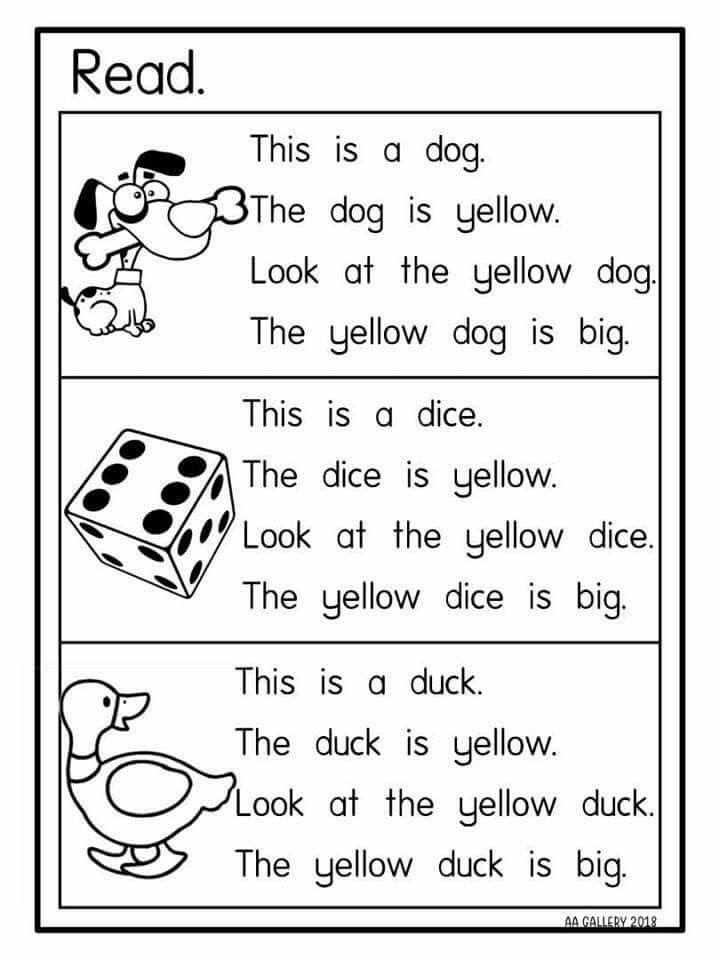 While I was reading to my eldest daughter, he was crawling around on the sofa, pinching our hair - it only annoyed me. Then suddenly, at the age of four, he fell in love with reading aloud. At the age of five, we began to teach him to read, at first he did not particularly like to do this either. And by the age of six, reading began, this is a spontaneous process.
While I was reading to my eldest daughter, he was crawling around on the sofa, pinching our hair - it only annoyed me. Then suddenly, at the age of four, he fell in love with reading aloud. At the age of five, we began to teach him to read, at first he did not particularly like to do this either. And by the age of six, reading began, this is a spontaneous process.
Often parents are afraid that their child will go to school without being able to read. It all depends on the teacher. Now I hear about cases when teachers say: “I don’t need parents to bring the child to some level, otherwise he will be simply bored in the lessons.”
2. Surrounding children with books is good advice, but it doesn't always work
My experience is very different. When I came back from book festivals and brought bags of books to children, we had the following dialogue: "I brought you gifts" - "What gifts?" - "Books" - "I see, but did you bring normal gifts?"
When there are many books in the family, the following stories may come up.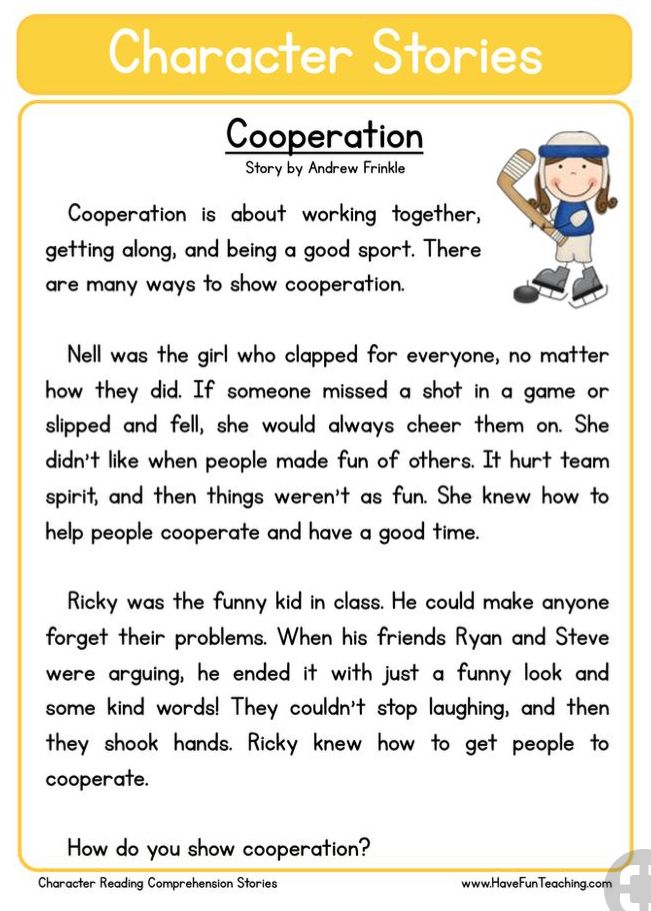 You ask: "Do you want to read a book?" - "Not". They closed the book and put it in the fridge. After a while, you ask again, you get the same answer, and you put the book on the windowsill. It turns out that these “I don’t want” lie all over the apartment.
You ask: "Do you want to read a book?" - "Not". They closed the book and put it in the fridge. After a while, you ask again, you get the same answer, and you put the book on the windowsill. It turns out that these “I don’t want” lie all over the apartment.
It seems to me that we should remember our book experience, when there were always not enough books in childhood. Especially the ones you really wanted to read. I run courses for children where we do group calculations, we have our own library that fits on a chair. These are books from my home library that have gone through a rigorous selection: they will definitely appeal to children who do not like and do not want to read. Children come, sit down, see some books, they are interested in taking them and looking at them, but I don’t let them do it. They say, “Please, please, can I? If I don’t take it now, then Petya will take this book later.” I say: "No, now we have a lesson, we are doing other interesting things." And when they see that the books cannot be freely approached, then after the lesson they scatter in a second.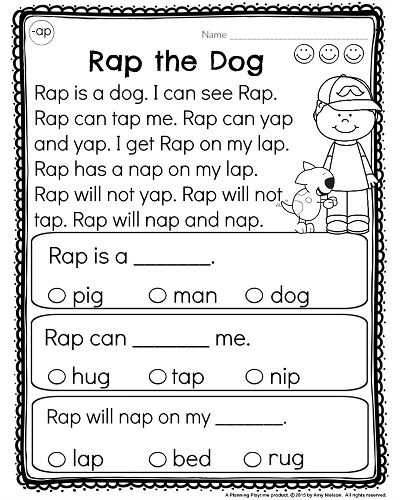 A mob runs up, they take everything apart and take it home. Moreover, the children know that next time I will ask what this book was about.
A mob runs up, they take everything apart and take it home. Moreover, the children know that next time I will ask what this book was about.
3. Talk with your children about the books you read yourself
Parents who read in front of their children are very rare. Use these moments to talk to him about the book you are reading right now, or even try reading out snippets. For example, my daughter once loved sheep very much, and I was reading Sheep Hunt by Haruki Murakami just at that time. When she found out about this, she said: “Sheep are being killed there, I feel sorry for them.” I offered to read a fragment of the book aloud to her so that she would see that no one was being killed there. I read the description of the pasture to her, and she was so delighted: her mother let her touch her book.
You can discuss books with other adults in front of children. I discuss books on the phone with my mother
We have similar tastes, my mother likes modern Russian women's prose, for example, Marina Stepanova.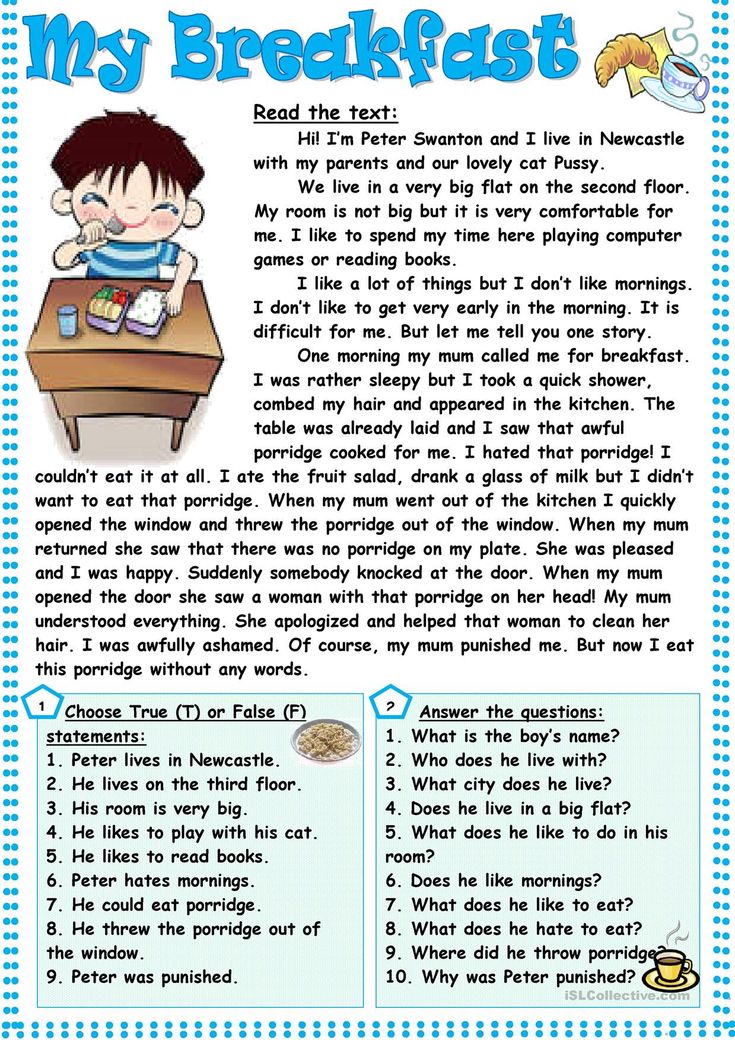 We call her and discuss some books, and the children hear it all.
We call her and discuss some books, and the children hear it all.
4. Read aloud. And record reading on a voice recorder
Parents spend the whole day at work, and if after that they read aloud to their children for at least ten minutes, this becomes a powerful lock that holds relationships together. You can also not only read aloud, but also record reading on a voice recorder. The phone is not suitable for this, because it will switch attention to itself all the time. There is only one button on the voice recorder - turn it on and off.
Dad sits down, reads aloud to them, all this is recorded on a dictaphone. One chapter in a children's book lasts an average of 10-15 minutes, this time is enough for the event called "evening reading" to take place. When dad leaves for a business trip, the children listen to the recordings. They turn it on when they eat, when they draw. This is not just a text, this is a memory of how good it was with dad in the evening.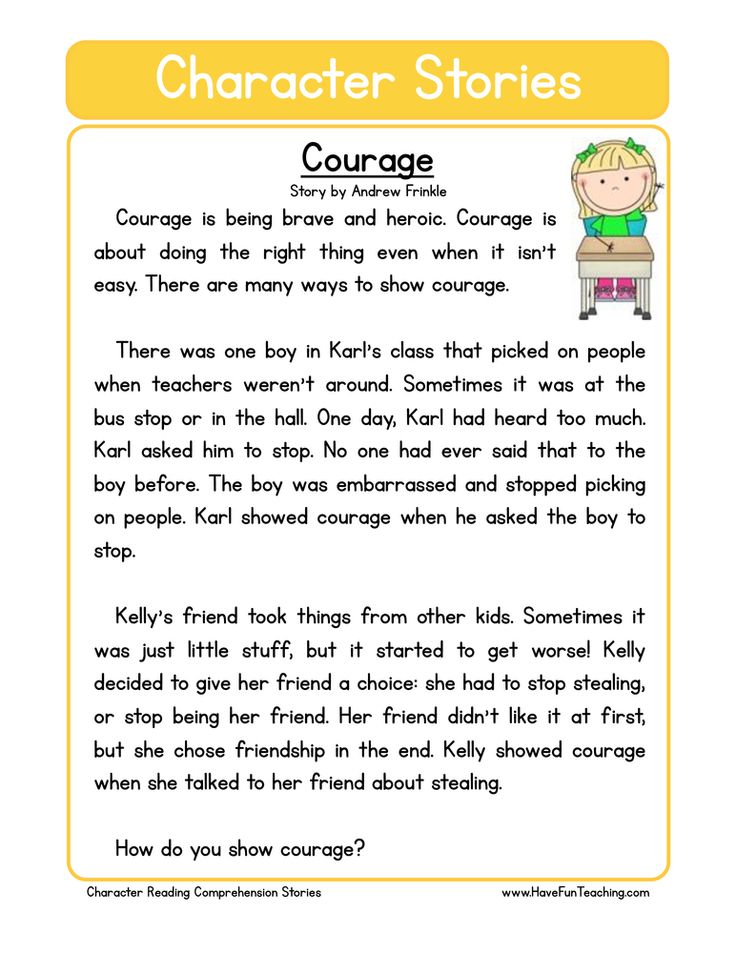
5. Don't ignore audiobooks - they help with text
Audiobooks are a relief for children who are not very confident and see mostly letters, not images. They first get used to, and then return to a paper book. This mechanism also works with films (yes, yes). Children first watch the movie, find out how it all ends there, and then take the book and read it. It happens that children take the book even after performances. The host of the theater studio told how she staged "Uncle Vanya" with teenagers, and then a boy came to her and asked: "Is it possible to read this somewhere?" So a well-read audiobook, especially if you listen to it with your parents and discuss the plot, can also help instill a love of reading.
6. Write a book about your child - this is another way to help him start reading
Take a picture or draw your child, stick it on a piece of paper and write: "This is Kolya." Then take a picture of how he eats and write: "Kolya eats.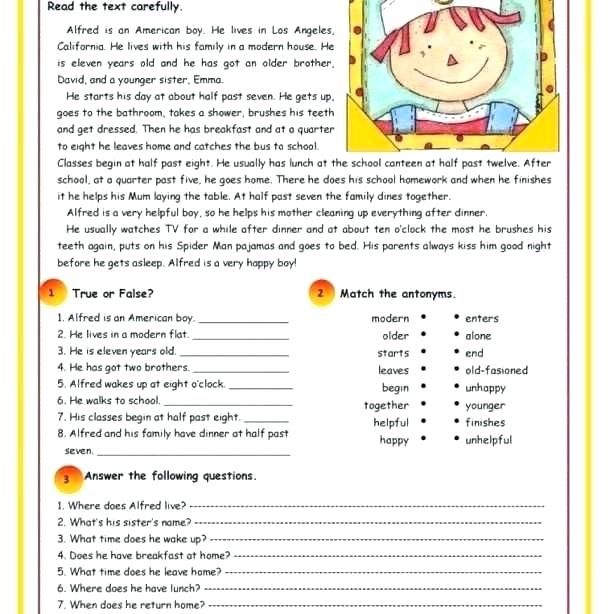 " Then you can take a picture of how he sleeps, plays, and so on. Make such a book and show a child at the age of three - let him look at all this. When he is four years old, he will understand that letters can somehow be put together into words and will start trying to do it. Reading about yourself is always more interesting. My daughter is 12 years old, and she sits down with pleasure herself and reads a book about what she did nine years ago: she sculpted hedgehogs, kneaded the dough, molded cookies from it.
" Then you can take a picture of how he sleeps, plays, and so on. Make such a book and show a child at the age of three - let him look at all this. When he is four years old, he will understand that letters can somehow be put together into words and will start trying to do it. Reading about yourself is always more interesting. My daughter is 12 years old, and she sits down with pleasure herself and reads a book about what she did nine years ago: she sculpted hedgehogs, kneaded the dough, molded cookies from it.
In my lessons I set aside 15 minutes and we write a book about ourselves. I give simple phrases that need to be completed: "Once I went ...", "And suddenly I saw ...", "Here I meet ...". It takes a little time, but it works very well. Children can write whole volumes about themselves.
In fact, for students who have difficulty in reading, it can be like writing classes - this is a good way to overcome reading difficulties. It seems that the child is learning to write, but at the same time learning to read.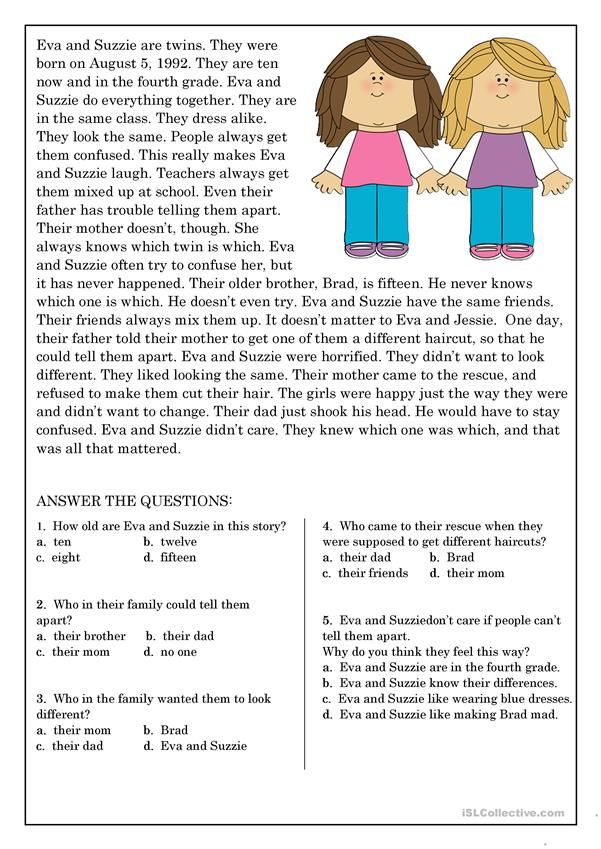 I had a girl on the course who stuttered and skipped words when reading. But when I read my text, I did not miss a single word. For her it was very important.
I had a girl on the course who stuttered and skipped words when reading. But when I read my text, I did not miss a single word. For her it was very important.
7. Do not be afraid that the child will not read the school list of literature for the summer
Take the list of literature, a pen and first of all cross out the books that the child definitely does not need. During communication with the teacher, you can understand what he wanted, including this or that book in the list. For example, in the first grade in our textbook there was a fragment from The Hobbit. The teacher decided that since there is a piece from Tolkien, then you need to read the whole book. I say, "Sorry, guys," and cross it out. We tried to watch a movie based on the book, but the children didn't get it: they were just scared.
Then cross out all the books that the children know by heart. In the first grade, along with The Hobbit, we came across Little Red Riding Hood. I crossed out this book because we know it very well.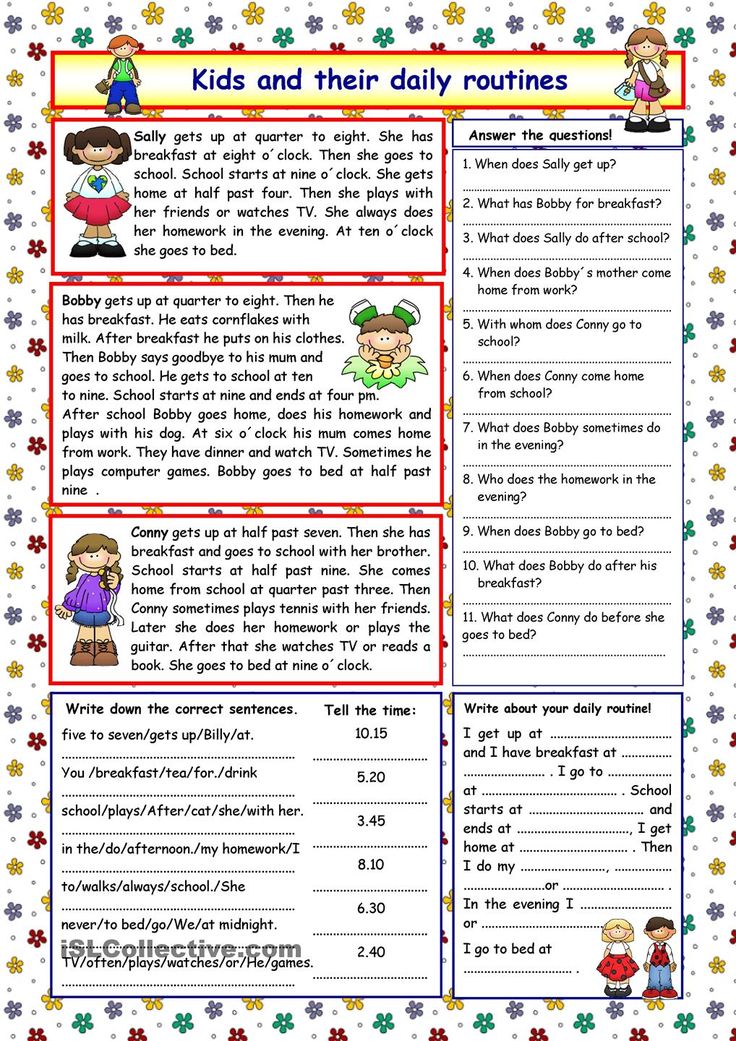 Next, we select books that can be replaced with audiobooks and films. If the child is not drawn to reading Pinocchio, just show him the film. The plot will be postponed, and when the text from the book comes across to him in the textbook, the child will cope with it, because he will be six months or a year older.
Next, we select books that can be replaced with audiobooks and films. If the child is not drawn to reading Pinocchio, just show him the film. The plot will be postponed, and when the text from the book comes across to him in the textbook, the child will cope with it, because he will be six months or a year older.
Then choose the books you will read aloud. It was the same with Garin-Mikhailovsky's The Childhood of the Theme. My daughter got it in the second grade, and I realized that she would not pull it.
There remains a small sample of books that the child can read on his own. You take this list and say: “Look, here the teacher recommended these books. Which of these would be the most interesting for you to read?”. He chooses and you start reading. One summer, our son read one or two books, but at the very least, we replenished our cultural baggage. Often parents are afraid that they will come to school in September and they will be asked if the child has read the entire list. Just answer that you didn't read everything. There is nothing terrible in this.
Just answer that you didn't read everything. There is nothing terrible in this.
What else to read about children's reading:
- Marina Aromshtam "Read!" - a book that will give parents answers to many questions.
- Yulia Kuznetsova Calculation. How to help your child love reading ”- a book about how parents can help children love books.
- Aidan Chambers “Tell me. We read, think, discuss” - the author tells how to communicate with children through books. What questions can be asked to children so that they talk about what they read and at the same time do not feel that they are being examined ( an excerpt from the book read here ).
- Daniel Pennack "Like a Novel" - for parents who are worried that their child does not read.
- Papmambuk - is an excellent site with useful materials about children's reading.
Listen to the full interview with Yulia Kuznetsova here. The conversation took place on the air of "Radio School" - the "Mela" project and the radio station "Moscow Speaks" about education and upbringing. The guests of the studio are teachers, psychologists, scientists and other experts. The program airs on Sundays at 4:00 pm on the radio "Moscow Speaking".
The conversation took place on the air of "Radio School" - the "Mela" project and the radio station "Moscow Speaks" about education and upbringing. The guests of the studio are teachers, psychologists, scientists and other experts. The program airs on Sundays at 4:00 pm on the radio "Moscow Speaking".
Illustrations: Shutterstock (oriol san julian, Kat Buslaeva)
Don't make them read! | PSYCHOLOGIES
14,315
Parents
Eleven-year-old Kostya declares that he does not like to read. “I like comics, magazines with pictures of different countries,” he says. - But thick books - all boring. At school, we are given extracurricular reading, but I only read the first pages, and then I ask the guys to tell how it all ended.
Thousands of children in Russia, like Kostya, do not want to read "boring books", confirms Yulia Yuzbasheva, director of the research agency Validata Kids: Potter), they are primarily interested in comics: "Spider-Man", "Magnificent Four", "Hulk", "Scooby Doo" - and magazines.
Teenage girls are fond of fashion publications, boys read about computer games and mobile phones, less often popular science encyclopedias and books like The World's Most Poisonous Animals, The 100 Most Famous Pirates, etc. Information about life celebrities, fashion trends and mobile news helps them keep up the conversation with their friends.” “It is not true to say that children began to read less than their parents at their age,” says school psychologist Natalya Evsikova, “they just read different literature.” Does this mean that we worry in vain?
Exploring the world in a different way
Serious books do not attract a child, but at the same time he cannot be called illiterate or retarded - he is simply interested in something else. He loves to play football, listen to music, make things or mess with the aquarium. “Lack of interest in reading does not mean a lack of interest in life,” says psychologist Elena Smirnova. “Anxiety is really justified when the child is not interested in anything at all. ” However, this explanation does not satisfy many parents, who consider it their duty to start teaching their child to read as early as possible, because they are sure that this skill is directly related to his success in the future.
” However, this explanation does not satisfy many parents, who consider it their duty to start teaching their child to read as early as possible, because they are sure that this skill is directly related to his success in the future.
Nikita was taught to read from the age of three, now he is nine, and he flatly refuses to do so. Each book is read with tears, persuasion: another paragraph, another page... And as a result, he can’t really tell what it’s about, or remember the names of the characters, and the very appearance of the book he associates only with parental threats: until you read three chapters, you won't go for a walk! Nikita began to complain of a headache and, as a result, turned from a cheerful child into a painful crybaby. His parents brought him to a psychologist almost in a panic: “He does not like to read! How to explain to him that without reading he will not achieve anything in life?
The desire to read will come if the topic is interesting to the child
Many parents are sure that if a child loves reading, it will be easier for him to learn, he will become more purposeful and in general will be able to achieve a lot.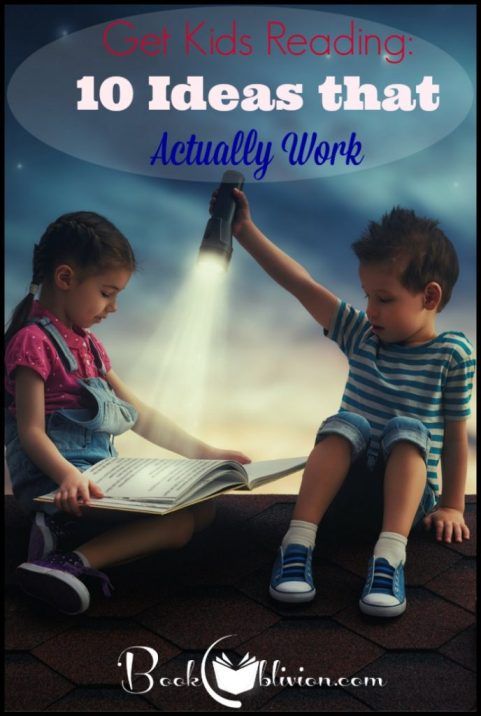 “But success in life does not directly depend on the love of reading,” says Natalya Evsikova. “On the contrary, by forcing the child, we provoke behavior that is not characteristic of him: he begins to figure out how to adapt to the elders, how to avoid screaming or even punishment for not reading much. Involuntarily, he learns a dependent style of behavior.
“But success in life does not directly depend on the love of reading,” says Natalya Evsikova. “On the contrary, by forcing the child, we provoke behavior that is not characteristic of him: he begins to figure out how to adapt to the elders, how to avoid screaming or even punishment for not reading much. Involuntarily, he learns a dependent style of behavior.
Nikita, for example, “invented” a disease for himself, and as a result, he really began to get sick, since the attitude of his parents to the problem had not changed.
“Forcing children to read, parents often go too far and easily “get the taste,” continues Natalya Evsikova. “Parental pressure usually starts around the time they start first grade, but gradually a coercive relationship style becomes natural to their communication, which inevitably creates new problems.”
The child begins to study worse and worse, ceases to get involved in anything at all, or, on the contrary, “drives” himself with studies, extra classes, books, and eventually loses the ability to enjoy simple pleasures.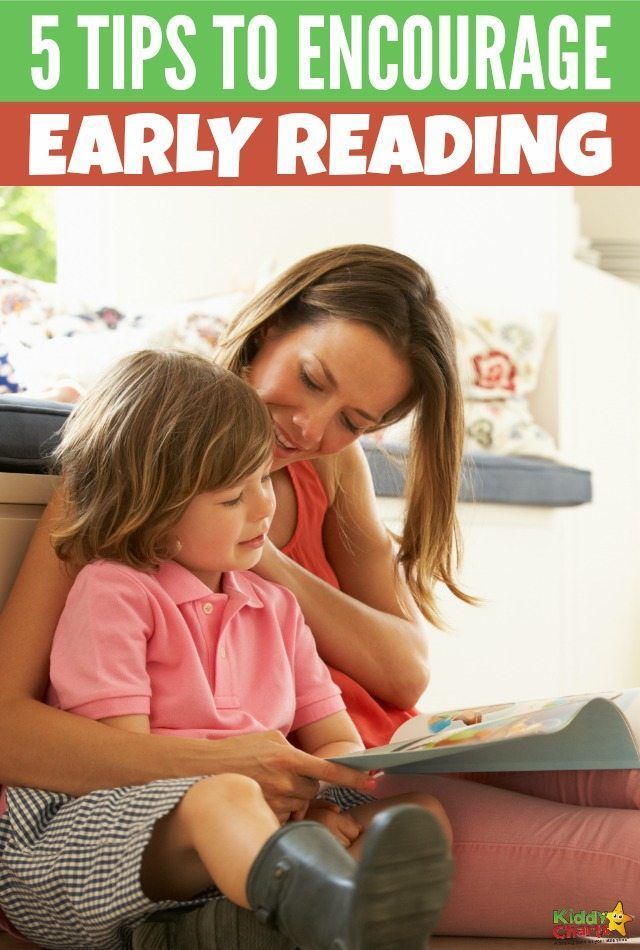 But he does everything to make his parents proud of him, believe in him - and finally leave him alone.
But he does everything to make his parents proud of him, believe in him - and finally leave him alone.
Reading is one of the ways of knowing the world. The desire to read will come if the topic is interesting to the child. In a situation of coercion, he involuntarily learns a dependent style of behavior. The development of the child and his success (in reading) depend on the diversity of his vital interests.
Order or interest
“I can't imagine my life without books. I give my students a lot of reading - without fail, and on trips I try to read aloud to them myself, - says Tamara Eidelman, Honored Teacher of the School of Russia, teacher of history at the Moscow Gymnasium No. 1567. — But my son, in 20 years of his life, has probably read 20 books, among which there are neither War and Peace, nor Crime and Punishment... music, is interested in politics, travels a lot. I'm beginning to question whether it's necessary to love reading in order to live life to the fullest.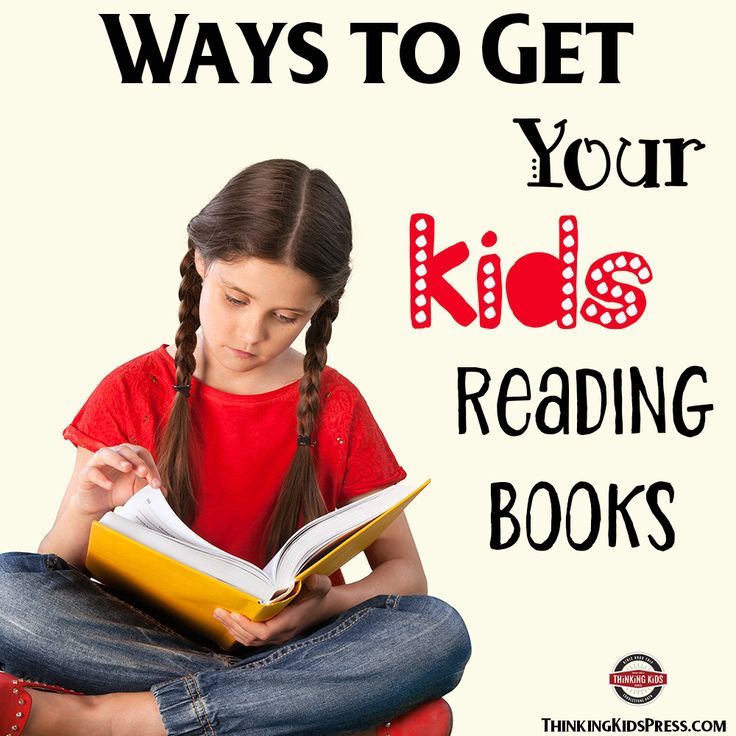 "
"
“The verb 'read' does not tolerate the imperative mood, like some other verbs: 'love', 'dream'…" explains French writer Daniel Pennac. Of course, you can always try. Shall we try? "Love me!" "Dream!" "Read!" “Read, damn it, to whom it is said - read!” And what is the result? Nothing. By order, by order, pleasure does not work. It turns out quite the opposite.”
The trouble with many caring parents is that they insist on reading the books they find right, often disregarding the opinions of small (and not so) readers. “When I was ten or twelve years old, in the summer my mother made me read 10 pages a day,” recalls 27-year-old Dmitry. - I procrastinated the text, mumbled something, hid from my mother and got scolded. As a result, it wasn't until I was 25 that I learned to read "for pleasure." In a good way, if then instead of Tolstoy's Childhood they gave me a reference book of a young radio amateur, then I would be imbued.
“Try to figure out what he likes the most,” advises Natalya Evsikova.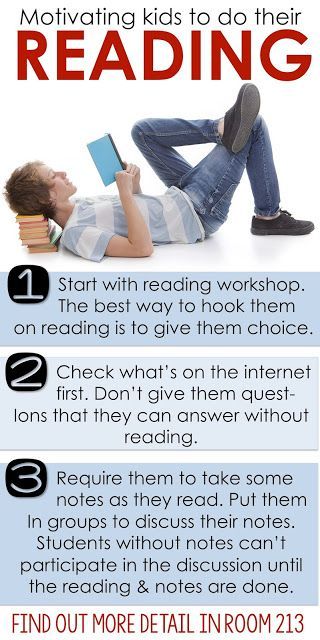 - This will help not only better understand what the child feels, but also change the style of your communication. As a result, it will be easier for you to offer him a book that really matches his interests.”
- This will help not only better understand what the child feels, but also change the style of your communication. As a result, it will be easier for you to offer him a book that really matches his interests.”
Reading everywhere
Quite often children are indifferent to "great" literature, but instead they read magazines, various encyclopedias, comics based on their favorite films. “All this is also reading, and it must be respected,” says Natalya Evsikova. - It enriches the imagination, helps to cognize the world around us and ourselves. There is no good and bad reading, it is only age-appropriate or not.”
Have an open mind about children's reading, it will make life easier for both you and your children.
Some parents rashly “record” anything that does not have a dust jacket or gold stamping on the spine into low genres. “I was terribly angry with my 13-year-old son when I saw that he was buying some kind of children's magazine,” says 35-year-old Olga.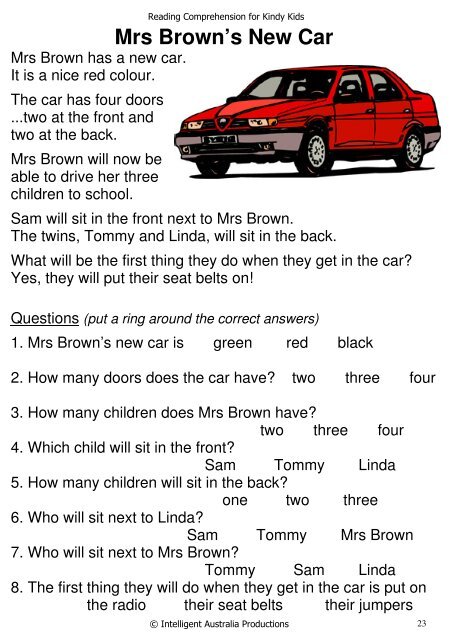 — I was annoyed by the very fact of buying some cheap comics! He said to me: let's see if you can answer the questions from this magazine? And he began to ask me about the history and geography of the Ancient East. To be honest, I failed. I leafed through - I was convinced that this was not an empty reading at all!
— I was annoyed by the very fact of buying some cheap comics! He said to me: let's see if you can answer the questions from this magazine? And he began to ask me about the history and geography of the Ancient East. To be honest, I failed. I leafed through - I was convinced that this was not an empty reading at all!
Have an open mind about children's reading, it will make life easier for you and your children. “If a child studies serial collections about pirates or robberies with interest, this does not mean at all that he will grow up to be a pirate or a thief,” says Elena Smirnova. “It could be exactly the opposite. In the same way, it should not be considered an axiom that any criminal will certainly enter the path of correction if he reads "high prose."
Free choice
You can hate books at the age of eight, but at 20 reading will become your favorite pastime. The reasons why children become interested in books can be different. Often this happens after the school and parents stop imposing reading.
“I am a techie by nature, the Russian language and literature have always been difficult for me,” says 24-year-old Ekaterina. - I missed these lessons and, if possible, tried to skip them. Having entered the Technological University, I suddenly discovered ... that I read fiction with pleasure! I want to do it - and it's hard to imagine what could be different.
“I started reading out of a sense of competition: my friend and I were competing to see who could read Dumas' collected works the fastest,” says 25-year-old Irina. “Then we got so involved that the excitement of the game disappeared, but the interest in reading remained.”
Sometimes the book itself provides the necessary impetus, as in the case of 18-year-old Boris, who read The Da Vinci Code only because everyone around him was talking about it. The bestseller so fascinated Boris that he began to read historical novels, read The Case of the Templars by Lobe and Guy, Druon, and several books on world history.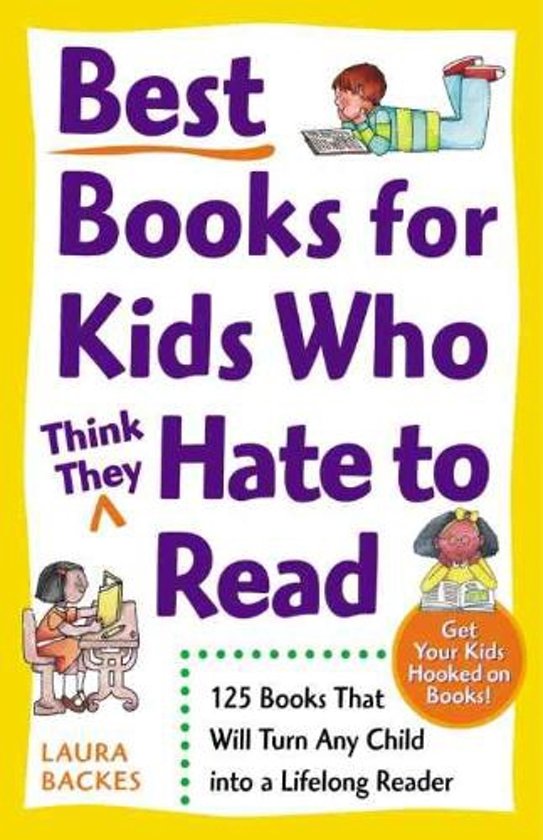 “Modern teenagers closely follow fashion,” comments Elena Smirnova, “including the fashion of reading. They will definitely read the bestseller they are talking about or their idol's favorite book, because it is very important for them to feel their own competence.
“Modern teenagers closely follow fashion,” comments Elena Smirnova, “including the fashion of reading. They will definitely read the bestseller they are talking about or their idol's favorite book, because it is very important for them to feel their own competence.
Reading is generally a personal matter, because in it we seek and to a large extent reflect ourselves. But here's the paradox. “If you don’t force a teenager to read Pushkin or Shakespeare, as well as watch a film or a play, if you don’t force him to go on an excursion, he will never do it himself,” says Lev Sobolev, honored teacher of the school of Russia, teacher of Russian language and literature at the Moscow gymnasium No. 1567 . “But at the same time, you can’t force him to do it, because Shakespeare, read under pressure, is not worth a penny.”Reading is not just pleasure, but above all freedom. The freedom to choose what to read - on your own, without teachers, without parents.
Reading is generally a personal matter, because in it we seek and to a large extent reflect ourselves. A lot of virtues are attributed to books, which they really possess. But there are many other ways to learn about the world and develop your imagination: playing, music, painting or cinema... For parents brought up in the Soviet school in the belief that a book is primarily a "source of knowledge" and "the best gift", it is not easy to accept this idea. . But it is worth trying if we really want reading to be a natural and joyful process for our children.
Grigory Oster: “Reading must be seduced”
“Children cannot be forced to read. Simply because children cannot be forced to do anything at all. They begin to resist, and they instantly become disgusted even with what they liked very much yesterday. They need to be seduced, to provoke a situation where reading seems to them an exciting affair. Read aloud to children from a very young age. And then there is hope that when the time comes, your children will begin to read on their own.
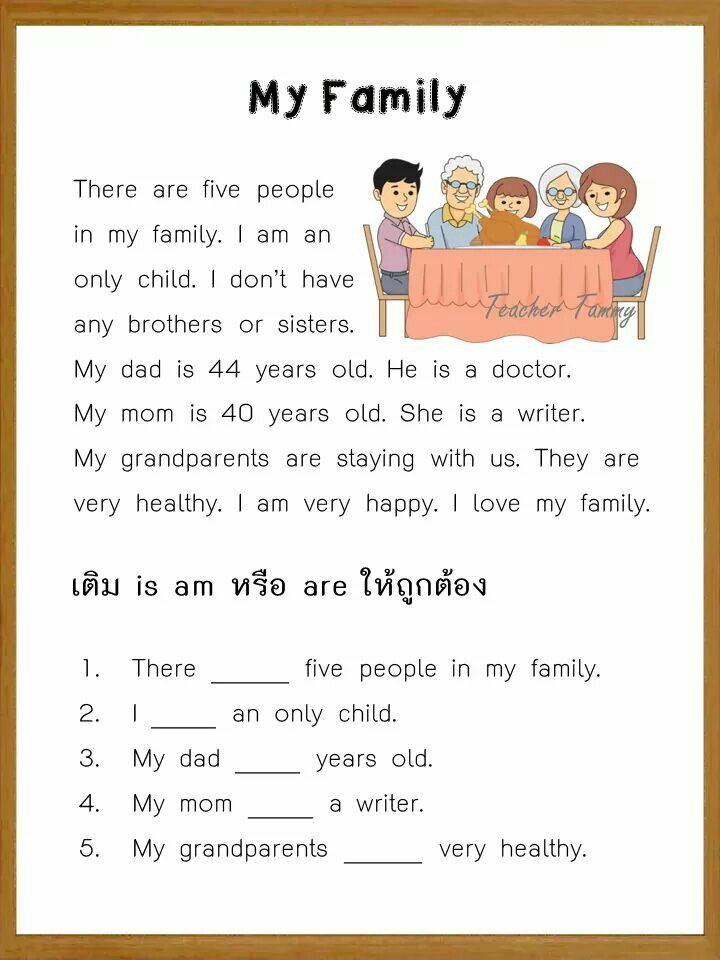
Learn more

